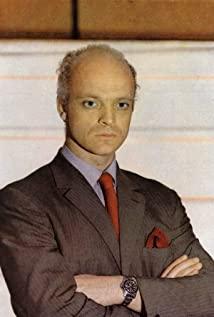The plot is not complicated. There was an accident at the space station on Solaris. Pilot Chris Kelvin went to find out the cause. When he got there, he found all kinds of weird things. Among the three scientists stationed there, he told him The most familiar Jibarian has committed suicide, and the other two scientists are also talking about it, not knowing what they are tossing about. And Kelvin himself encountered all kinds of inexplicable problems, and met his wife who has been dead for ten years. Later, it was discovered that other people on the space station or other types of human bodies were all experimental objects sent out after scanning their cerebral cortex on the planet Solaris. Finally, after scanning the dot map of Kelvin’s brain and sending it to the ocean, Dayang stopped sending new test products. Lyme's wife also took action to eliminate her own existence.
In Lime, the novel is not obscure at all. The first sentence of the wiki is very clear: Solaris discusses: the ultimate inadequacy of communication between human and non-human species. The logic is not complicated. In most of our sci-fi movies and sci-fi works, the alien life we imagine is humanoid and humanoid, or at least has a mind similar to ours, or other visible shapes. But why should alien life be like this? In terms of language, the language in Jiang Ted's "The Story of Your Life" is complex enough, but in the end it is still understood by us. In Lyme, this kind of agent is directly the ocean, and even life in the sense of the earth is not necessarily counted, because it cannot copy and reproduce itself, which is beyond the imagination of most science fiction, and in the end, we It has also failed to establish any effective communication methods with Dayang. The novel narrates a large number of human studies on Solaris, and successfully invented a Solaris study. For hundreds of years, people have repeatedly argued about this issue, but in the end it is only because of the impossibility of communication. Add a footnote in vain.
For Tarkovsky, the movie is much more complicated. In addition to the common Tarkovsky propositions such as humanity and love, the movie involves several propositions that are often involved in science fiction stories, such as human and non The relationship between people is a topic that Philip Dick is extremely passionate about. "Blade Runner" has been discussing this issue from beginning to end, but Tarkovsky did not make more explorations. The most fundamental difference is that in the novel, the novel asks about the fundamental limitations of this kind of person:
"If we want to solve the mystery of the universe, we are ready for everything. That is to say, we are ready to endure loneliness, to struggle, and to be martyrdom and death. Out of humility, we didn’t make a loud noise, but we Sometimes we do think about it again, we are great. However, this is not the whole truth. The wishes we show are just bluffs. We don’t want to conquer the universe at all, we just want to extend the boundaries of the earth to the maximum. A certain planet has It may be completely desert, just like the Sahara, another planet may be covered by ice and snow, like the North and South poles, or a tropical scene, like the virgin forest of Brazil. We are fraternity and noble, we don’t want to conquer other races, We just want to spread our value to them, and in return, accept their entire heritage. We think we have the sacred mission of communication, a kind of chivalry. This is another lie. We are looking for people, not people The world outside. We don’t have the needs of the world outside of human beings. What we need is a mirror of man’s own. We have no eyes or touches on other worlds. We come from this world, and we are suffocated in this world. We We want to find images that are idealized in our style; we look for a planet and a civilization that is more perfect than our planet and our civilization. What we hope to find on other planets is based on our ignorant past. It may have entered a higher stage of evolution, but it must also be based on the same evolutionary principles as in our civilization. But on the other hand, we will fight back against those things that we can’t agree with. In the end, only We bring the pure earth virtues from the earth, the monument of the merits of human heroism! We are guided by this morality to fly here, we are here to achieve this goal, but on the other hand, when When the truth is revealed, we have to conceal the truth. We cannot bear the truth that is different from ours!"
In the movie, the passage becomes:
"...In this case, mediocrity and genius are the same. Value, we are not interested in conquering the universe, we want to extend the earth to the boundary of the universe, we don’t know how to deal with other worlds, we don’t need other worlds, we need a mirror. We have been working hard for contact, but we have never Without contact, we fell into a stupid human situation, struggling for a goal he was afraid of, struggling for a world he didn’t need. Humans need humans.”
These two tone are completely different. Although they are also spoken from Snow, in Lyme, this is a lament of our limitations. The ending of the novel is also such a kind of helplessness, facing the mysterious and unpredictable. Laris Dayang, we can't understand at all. In the movie, the ending of the movie is even more mysterious. Chris returned to his hometown on an isolated island in the ocean. We can't even understand whether this is reality or an ocean fantasy. When Haeruo turned to the magnificent "Hunter in the Snow", the tone of the whole movie began to shift from the outside to the inside, from our relationship with the world of others to our own inner world. This is also another issue involved in the slightly sci-fi-like "Stalker", which Tarkovsky himself is extremely keen on.
When facing the other, do we need the outside world? It is at this point that novels and movies give two completely different answers.
For Tarkovsky, the mysterious Solaris Ocean is nothing but a mirror, a mirror used to examine himself. There are not too many problems with this. Tarkovsky is actually restating the old proposition: "Man is the measure of everything." I wrote an article "Why Read Science Fiction" before. We must admit this "anthropocentrism" position, because we are human beings after all, and we cannot think beyond ourselves. After all, novels have to be written in human language.
However, many outstanding sci-fi works are always expanding our previous definitions. When facing others, they are reflecting on our own limitations as human beings. Correspondingly, they are also expanding our concept of "human beings" step by step. Subvert some of our accustomed concepts. The problem is that Tarkovsky does not look beyond a Western or even Russian perspective. He didn't extend this concept more broadly, but just drilled deeper. When Haeruo stared at "The Hunter in the Snow" for a long time, what we thought of was only a product of a certain culture. Other elements included Bach’s music, Bruegel, Dürer, Andre Lubrio Husband's painting. In other words, Tarkovsky did not try to cover up his own cultural background. This is precisely what a sci-fi theme works to avoid. Most sci-fi works, whether they are novels or movies, will try to get rid of the characteristics of being an individual as a product of a certain culture as much as possible, because science fiction is more Treat people as a race.
In Tarkovsky's view, we haven't even completed our exploration of ourselves, how can we go to space? Tarkovsky too much bound us here and now. He inherited the reflective tradition of Russian thought, and at the same time he was a person living in the Cold War era. In his view, the destruction of our civilization is by no means alarmist, so his worries can be fully considered. But what’s interesting is that the Cold War was exactly the golden age of science fiction (not the golden age of science fiction history). At that time, science fiction writers possessed amazing vitality and imagination. Later, the subject of science fiction was destroyed by civilization. There are too many themes for the background, Matrix, Fallout, base, etc. In these stories, the destruction of our current civilization is by no means the end of the world, or even the basis of another new civilization-no matter It is better to live worse. Most science fictions have varying degrees of optimism. People will never shy away when exploring. Even if they are hit and beaten, they will never move forward. I don't know if this is one of the differences between Russian thought and Western thought.
Tarkovsky's own comments on the film:
I think the film specifically presents the concept of "consciousness", which is well expressed. The problem is that there are too many pseudo-scientific tricks in the film. Orbital space stations, equipment, all of which bore me deeply. In my opinion, modern and scientific things symbolize the mistakes made by human beings. Modern people are too concerned about the development of materiality and the practical side of reality. He is like a carnivore, only knowing to ask for it, which makes mankind's interest in the transcendental world disappear. Humans today are like earthworms: a small pipe that swallows dirt, leaving behind a small pile of dirt. If one day he swallowed the whole earth and caused it to disappear, then we don't need to be shocked. If flying into the universe takes us away from the primary problem-the harmony between thought and matter, what use can this action be?
In fact, Lyme is also extremely dissatisfied with Tarkovsky's adaptation. Although the two communicated a lot during the shooting, they still lacked the most fundamental identity. The exploration in the film is almost entirely internal. The coat of science fiction is almost completely unnecessary, and this story can be set aside without the coat. The famous 30 seconds of weightlessness is not necessarily more moving than the levitation in "Mirror". Some other recurring intentions, sudden heavy rain, repeatedly appeared in "Mirror" and "Andrei Rublov". These images all remind us that this is a Tarkovsky movie. Rather than a common science fiction movie.
In the end, I always feel that Kubrick should be the best adaptor of this novel. When the magnificent red sunrise and blue sun rise in the novel, it reminds me of the very famous sunrise at the beginning of 2001. The unpredictable ocean landscape described in the novel reminds me of the last in 2001. The mysterious and unpredictable passage through the star gate. I think if anyone can really visualize Lime's exploration and description, it must be Kubrick. Kubrick lacks neither the imagination nor the true understanding of science fiction issues. And the ultimate theme of the novel has a feeling of reaching the same goal in different ways with the meaning of the last star boy in 2001. Regrettably, Kubrick seems to be a person who will never get involved a second time after dabbling in a subject.
View more about Solaris reviews











